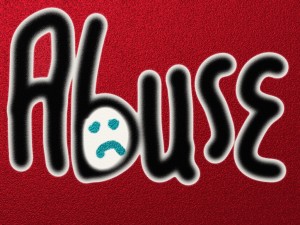 Abuse Poisons Innovation Efforts — and Innovation Experts Take Fairness as a Given
Abuse Poisons Innovation Efforts — and Innovation Experts Take Fairness as a Given
The Five Forms of Employee Abuse (see below)
One of the nice things about working for yourself is you don’t have to put up with abuse. Yes, sometimes I’m out there scrambling, sometimes clients are very demanding — but that’s a small price to pay for living or dying on the strength of my own ideas and work.
I was reminded yesterday that the vast majority of people work for a company. A good friend suffered a demeaning and unfair incident at work — and it was devastating. I recalled the many times in my early career when similar things happened to me. It occurred to me that this kind of abuse is very common, and yet, it’s rarely talked about as a factor in innovation.
Most people are employees.
In companies large and small, old and start-ups — employees are often simply abused. It’s wrong of course, and does it need said? Abuse poisons innovation efforts.
I’m not talking here about sexual harassment. No, I’m talking about more run-of-the-mill stuff — disrespect, belittlement, harsh criticism, sniping, bullying, poor conditions, and punitive abuse. Like sexual harassment it’s about power. Racism and ageism are abuse as well but I’ll not address them here directly.
Millions of people suffer these so-called minor indignities everyday. The managers and leaders who perpetrate these abuses are creating cowering dogs as employees. In the long run those companies will not do well because the people who work there won’t create and innovate and the company will fail. In the short run they make a lot of people miserable.
Do you disagree? Can people innovate when scared for their jobs or forced to defend their pride? Or do you think it’s possible to treat some people fairly (like those talented innovation home-run hitters) and lock other people inside the store at night? I believe the poison of abuse bubbles up even in companies that treat highly talented people well and lower level workers poorly. Some very talented people will see the unfairness and keep their mouth shut — and their resume file open.
Innovation insight often comes from lower rungs on the company ladder, but those ideas won’t be expressed in an environment of fear.
I’m not only referring to the sweat shops in the far east, I’m talking about companies here in the USA. There are reasons unions exist — and employee abuse is one of them. I’m not arguing for unions. I’m arguing for civility and fairness. I think it’s only logical to say, if there is no perception of fairness and civility you open the door to unions.
Innovation experts usually talk more esoterically about concepts like workplace culture. We talk about how the culture needs to support innovation. We talk as if the average employee is happy with his or her job and only needs to focus more on innovation and accept their responsibility for helping with innovation. If only it were that simple.
We innovation consultants take as a given that people are being treated reasonably and fairly. It’s a huge assumption and I daresay one that is quite often wrong. Good plans for innovation are subverted by an even mildly abusive culture. Employees worry first about themselves, their families, and the security/potential of their job situation. If you clear those hurdles your innovation culture has a fighting chance.
If employees are routinely abused (or think they are) you will Never, Ever, Get Them Thinking or Doing Innovation. Creativity? It will never happen if people feel fear. You might beat people into a certain kind of performance, but you’ll leave a lot of opportunities on the table.
We can argue about what constitutes fair and reasonable. In this post I’ll ignore the perceived unfairness of wacky pay scale differences — it’s at the esoteric end of this argument in my view. I think fair and reasonable starts with that old fashioned notion called polite manners — how about that to begin with? Managers, Leaders, who seek to create more positive work environments let’s watch out (and seek to remedy) any of these Five Forms of Employee Abuse:
- Managers with poor training who wield their bit of power like a sledgehammer. Talented people will quit, hard workers will work at minimal levels for bullies. Call it Thor-esque Abuse.
- Lack of Day to day civility, that is, people who make demeaning personal comments, render harsh critiques, use thinly disguised jokes to belittle, and conduct overly personal employee reviews. Include here also the subtle psychological abuse of exclusion, shunning, and passive aggressive behaviour. Call it Rickels Abuse.
- Suspending, firing, or disciplining an employee for voicing disagreement with company policy, or, for taking legitimate sick days. Call it Stalin-esque Abuse.
- Punishing those who seek a better way, or are perceived as complaining too much. Call it Golden GooseKiller Abuse.
- Docking pay or hours as a punitive measure for some perceived flaw in performance, or god forbid, “bad attitude.” Call it Abuse of Bad Apples.
All these abuses will cost you money in the long run.
Look, work life is not a bowl of cheries, I know that. People, and organizations, come in many flavours and some of those flavours are bitter and nasty. Work is a huge part of any person’s life and out in the real world you are going to encounter bitter, nasty, stupid, ignorant, angry, and selfish people. This is also a given in my book. Sad as it is, it’s reality. But know this: innovation rarely happens in a culture where employees at any level are forced to drink the bitter poison of abuse.
Don’t Be a Phoney Family
The silver lining in all this abuse is the opportunity to be the kind of place people get up early for, the kind of place that doesn’t just say “we’re family” but really is. I find it weird that so many companies tout their family values and atmosphere — and day to day act like a family having a cat fight at the Thanksgiving dinner table.
In order to innovate, let alone manage current operations, a positive culture has to be put in place. It can, and does, happen. It starts with leadership at the top but it doesn’t end there. Functional managers must also get the training required to lead positive teams and projects. In my view this is a very basic starting point for innovation.
Basic Fairness is the heart of a positive workplace culture.
I’m not saying there shouldn’t be conflict at work. Conflict is a normal part of work life, in fact, without conflict a team does not arrive at high productivity (the classic Tuckman model of Forming, Storming, Norming, Performing comes to mind.) Productive conflict is something to be desired. Critique is critical to success — but you’ll not get there, you won’t be heard, and you’ll not improve, if people feel abused.
Just Stop Employee Abuse. Or Write the Epitaph of Your Organzation.



One response to “Employee Abuse is Poison to Innovation”
[…] (Gregg Fraley) One of the nice things about working for yourself is you don’t have to put up with abuse. Yes, sometimes I’m out there scrambling, sometimes clients are very demanding — but that’s a small price to pay for living or dying on the strength of my own ideas and work. […]